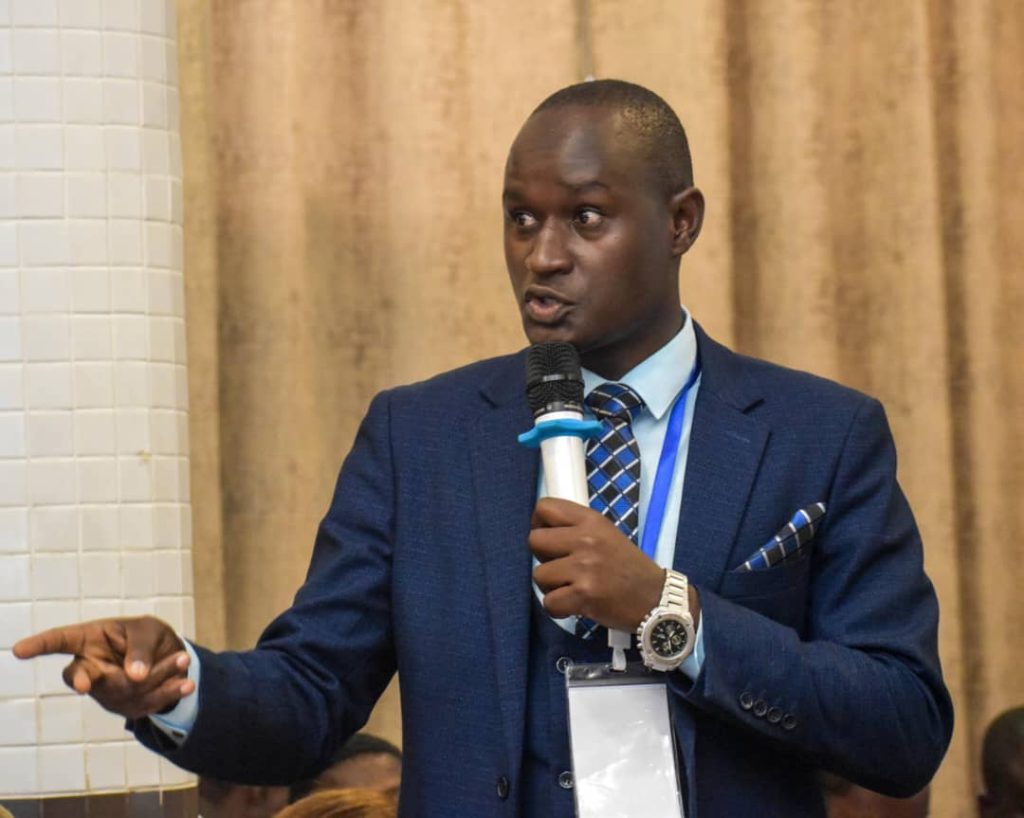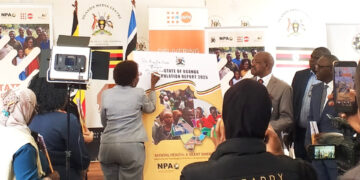By Leonard Kamugisha Akida,
NATIONAL
Youth Leaders are sounding the alarm, warning that the government’s failure to address the youth unemployment crisis, corruption and the failure to empower the youth jeopardize the country’s future because the young people are increasingly growing frustrated and disillusioned.

The 2024 National Population and Housing Census results from UBOS indicate that unemployment rate in Uganda is estimated at 12.6%. With 80% of the population below 30 years old, experts say that the youth unemployment crisis should be handled with utmost urgency.
Francis Adepo, President of the FDC Youth League, criticized the government for not doing enough to empower youth economically, which he says has left many trapped in a cycle of oppression and poor governance.
“Unfortunately, the NRM regime has perpetuated a culture of dependency, stifling innovation and progress. Our youth are forced to rely on handouts instead of being equipped with skills and resources to create their own opportunities,” Adepo said.

However, Sovereign Hasahya, Secretary for Female Youth Affairs in Butaleja district, offers a contrasting view. She praised President Museveni’s government for initiating several youth livelihood programs such as Emyooga, Parish Development Model, and other Youth skilling programs like industrial hubs which aim to create jobs and wealth among the youth.
“Government has provided 30% of the PDM funds to be given to the youth at every parish, there are also other transformative programs for the youth and women like Emyooga, UWEP, industrial hubs which equip them with hands-on skills for wealth and job creation,” said Hasahya.
Despite these efforts, Hasahya criticized the financial mismanagement by some youth who misuse government funds on personal indulgences, such as buying alcohol or marrying wives, leading to continued poverty.
Youth engagement in national development programs and representation in governance was another issue raised by the youth. Hasahya challenged that unlike in the past governments, the NRM government has amplified the voices of the the youths by bringing them to the national cake. She highlighted some positions in the cabinet, parliament, government MDAs and in the local government which are occupied by the youth, arguing that youth representation in governance has increased overtime.
Adepo however, criticized the government for excluding young people from decision-making processes, describing the current youth-led positions as merely serving the interests of President Museveni’s NRM party. He said excluding the youth in decision-making processes is an exploding bomb to the country’s democracy.
“The exclusion of youth from decision-making processes is stark. Our voices are silenced, our concerns ignored,” he said, “The government’s inaction has turned our youth into a ticking time bomb of frustration and disillusionment.”
Furthermore , the youth raised concerns over Uganda’s alarming corruption ranking, Adepo alleged that graft is impacting every sector, including healthcare, education, and infrastructure. “Corruption has become a cancer that is eating away at our nation’s fabric,” Adepo explained. “The lack of transparency and accountability has led to embezzlement, nepotism, and cronyism, which deny Ugandans access to basic services and opportunities.”

Hasahya, who is aspiring to be the Woman MP for Butaleja district in 2026 under the NRM, suggested stricter measures to curb corruption, including the arrest and trial of individuals accused of embezzling public funds. She proposed that properties of those found guilty should be confiscated to recover stolen public money.
“Arresting them is not enough. They should pay back what they stole from the government,” Hasahya stated. “Embezzling public funds not only affects service delivery but also deprives beneficiaries of their right to access essential services. It must be punished severely.”
The youth leaders emphasized the need to strengthen anti-corruption institutions by granting them full autonomy and ensuring they have sufficient funding. They also called for better citizen engagement in fighting corruption, including providing safe channels for reporting misconduct and protecting whistleblowers.
The youth remarks come at a time of increasing public frustration with Uganda’s leadership, as both corruption and failure to empower the youth jeopardize the country’s future.
As Uganda celebrates her 62nd Independence today (Wednesday October 9, 2024), Adepo warned that the youth will no longer accept marginalization, he called for a collective uprising to demand for accountability and greater representation.
“The time for revolution is now! Together, we can build a brighter future, free from the shackles of corruption and neglect,” he urged.

For Hasahya, youth active participation in politics, and other transformative government programs are critical to their social empowerment. However, she decried commercialization of politics which she says excludes many young people from active participation due to financial barriers.
“When it comes to highly competitive positions like MPs, youth may have the abilities and good manifestos, but they lack the funds. This commercialization of politics affects youth representation in governance,” Hasahya lamented, calling for voter sensitization to elect capable leaders rather than those who bribe their way to victory.
Both Adepo and Hasahya agree that without significant reforms to end corruption and genuine efforts to engage the youth, Uganda’s future remains uncertain.








































